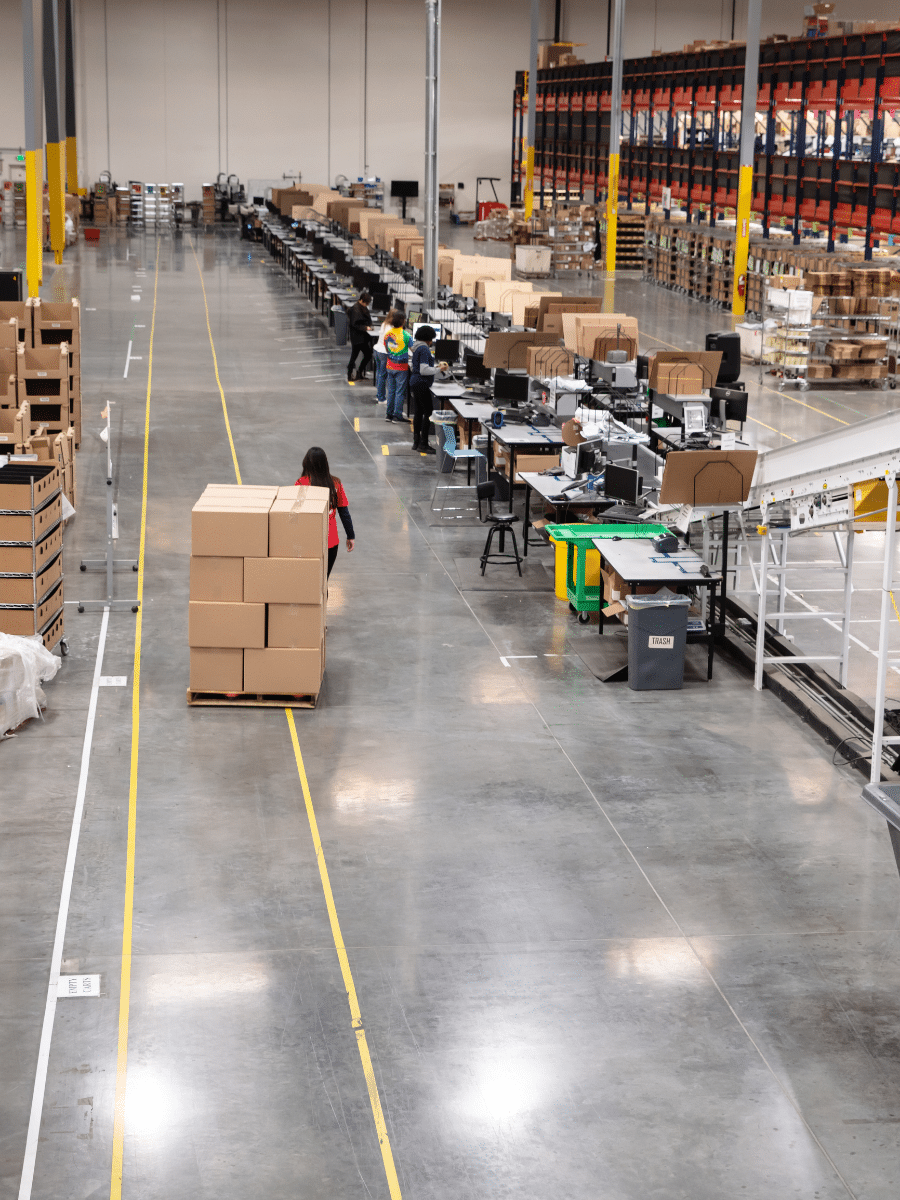Picture a bustling port from centuries ago, ships coming in heavy with goods from distant lands, and dockworkers meticulously cataloguing and storing items in vast warehouses. The warehouse, even then, was the heart of commerce, pumping goods in and out like a vital organ. Fast forward to today, and while the ships might have transformed into trucks and planes, and paper ledgers into digital systems, the essence remains the same. The warehouse is still that beating heart, and the warehouse manager? They’re the vigilant guardian, ensuring every pulse is timely, every beat is efficient.
Warehousing, an industry as old as trade itself, has seen its fair share of evolution. From the ancient granaries of Egypt to the sprawling distribution centres of today, warehouses have always been the silent workhorses of commerce. But as trade routes expanded and technology advanced, the role of the warehouse and its manager underwent significant transformations.
In the initial phases, warehouses served as basic storage spaces, safeguarding products from natural conditions and possible pilferers. The warehouse manager’s role was largely supervisory, ensuring goods were stored correctly and keeping a watchful eye on inventory.
However, as global trade burgeoned with the age of exploration and the industrial revolution, the demands on warehouses grew. They became hubs of activity, where goods were not just stored but sorted, processed, and dispatched. The warehouse manager’s role evolved from a mere supervisor to a strategist, planner, and the linchpin holding the entire operation together.
Nowadays, with the emergence of online shopping, timely deliveries, and interconnected global distribution networks, the warehousing sector encounters unprecedented challenges and intricacies. And standing at the forefront, navigating these challenges, is the modern warehouse manager. Their responsibilities have broadened to include not only overseeing stock but also incorporating technology, championing eco-friendly practices, and devising supply chain tactics.
Like a seasoned captain steering a ship through turbulent waters, today’s warehouse managers navigate the complexities of the modern supply chain with finesse and strategy. Their decisions impact not just the warehouse but the entire supply chain, making their role both challenging and indispensable.
Considering this historical context, let’s explore further the diverse responsibilities of the warehouse manager in our ever-changing contemporary landscape.
The Evolving Role Amidst Disruptions
In the grand tapestry of global trade, disruptions are the unexpected knots and tangles that warehouse managers must deftly navigate. In earlier times, disturbances often stemmed from natural events, conflicts, or regional disputes. Nowadays, they span from global political strains and commerce disputes to widespread health crises and environmental catastrophes. Each disruption brings its own set of challenges, and the warehouse, being the nexus of supply and demand, feels the brunt of these upheavals.
The modern warehouse manager, much like a seasoned sailor in stormy seas, must anticipate these disruptions and have contingency plans in place. This involves diversifying supply sources, maintaining a flexible inventory, and building robust communication channels with suppliers and customers. Merely responding to disturbances isn’t sufficient anymore; forward-thinking and nimble choices have become paramount. Fundamentally, the warehouse manager’s position has shifted from being a responsive supervisor to an anticipatory planner, guaranteeing the supply chain’s stability amidst unexpected hurdles.
Championing Sustainability
The call for sustainability resonates across industries, and warehousing is no exception. As the guardians of goods, warehouse managers have a pivotal role in ensuring that operations are both efficient and eco-friendly. It’s not merely about fulfilling a corporate sustainability criterion; it’s about ensuring the sector’s longevity and relevance for the future.
Warehouse leaders are currently venturing into green energy alternatives, like installing solar arrays atop their facilities or incorporating wind energy systems within their grounds. They’re also focusing on minimising waste, from reusing packaging to streamlining storage for minimal spoilage. The transportation of products, a significant contributor to carbon emissions, is also being closely examined. By refining transportation paths, merging cargo, and shifting to greener transport modes, these managers are lessening their operations’ environmental impact.
At its core, the contemporary warehouse leader mirrors an eco-guardian, making sure that the pursuit of financial gains doesn’t jeopardise our Earth. Their mission is to harmonise effective operations with ecological mindfulness, ensuring that today’s storage practices don’t jeopardise our future world.
Embracing Technological Innovations
The digital revolution has left no stone unturned, and warehousing is riding the wave of technological advancements. Gone are the days of manual ledgers and stock-taking. Today’s warehouses resemble scenes from science fiction, with drones, robots, and sophisticated AI-driven management systems.
For warehouse managers, this technological surge is both an opportunity and a challenge. On the upside, advancements such as the Internet of Things (IoT) facilitate instantaneous monitoring of items, anticipatory upkeep of machinery, and decisions based on data insights. Conversely, assimilating these tech solutions demands considerable resources, skill development, and adaptation strategies.
Warehouse managers are now tech visionaries, identifying the right technologies that align with their operational needs. They’re also educators, ensuring that their teams are equipped to harness these tools effectively. It’s a fine balance between welcoming what’s next and safeguarding the current state of affairs. But, by striking the right balance, warehouse managers are ensuring that their operations are not just efficient but also future-ready.
The intricate world of warehousing, with its vast expanse and myriad operations, is a testament to the relentless march of commerce and trade. At the epicentre of this bustling activity stands the warehouse manager, a figure whose importance has grown exponentially with the evolving demands of the industry.
From the early days of simple storage facilities to today’s technologically advanced hubs of global distribution, the warehouse has mirrored the evolution of trade itself. As this transformation has progressed, the position of the warehouse manager has transitioned from simply overseeing products to becoming a visionary leader, tech trailblazer, and advocate for eco-friendly practices.
Their duties extend beyond the tangible confines of the storage facility. They oversee not just products but also information, tech advancements, personnel, and the evolving trajectory of the distribution network. Their choices have a cascading effect, influencing vendors, consumers, and the wider landscape of international commerce.
Pondering the diverse responsibilities of the warehouse overseer, it becomes clear that they are the often-overlooked pillars of the contemporary distribution chain. Their knack for flexibility, pioneering spirit, and leadership amidst adversity ensures the seamless flow of trade. In our rapidly changing and interconnected globe, the warehouse overseer emerges as a symbol of consistency and vision.
Peering into the horizon of storage and distribution networks, the industry’s triumph and robustness will undoubtedly be moulded by the acumen, foresight, and versatility of its frontrunners. Leading this vanguard is the warehouse overseer, steering us towards an era marked by proficiency, eco-consciousness, and preparedness for the uncertainties ahead.



